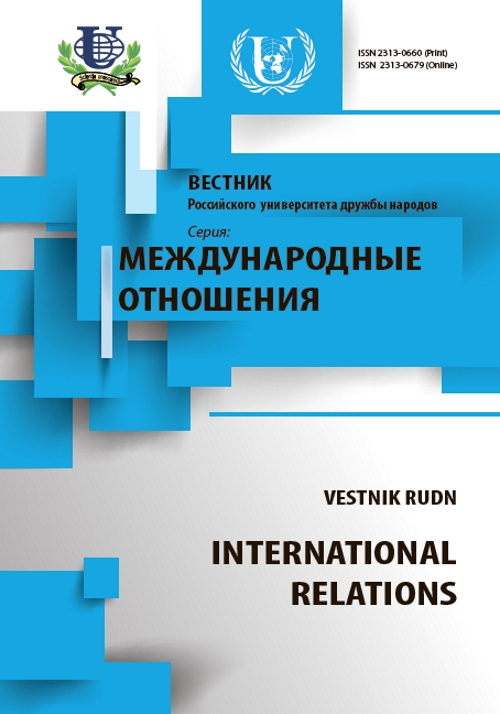Development of the Relations between New Zealand and the European Union at the turn of the XXI century
- Authors: Kolmakova A.V.1
-
Affiliations:
- Institute of Oriental Studies of Russian Academy of Sciences
- Issue: Vol 16, No 1 (2016): "Soft Power" in International Relations. The Image of Russia
- Pages: 133-140
- Section: ARTICLES
- URL: https://journals.rudn.ru/international-relations/article/view/10535
- ID: 10535
Cite item
Full Text
Abstract
This article introduces the emergence and development of political and economic relations between New Zealand and the EU since the mid XX century till present. The progressive strengthening of the mutual cooperation has the positive effect on the market liberalization in YUTR and allows New Zealand to focus not only on the Asian market, but also become a reliable field for investment for Western partners. Today, relations between New Zealand and the European Union (EU) are based on the principles set in the Joint Declaration on the development of relations and cooperation, signed in Lisbon on 21 September 2007 in addition to the Joint Declaration of 1999 and the Plan of joint actions in 2004 entitled “Priorities for future cooperation”. Political contacts at the highest level between the EU and New Zealand, as well as practical steps taken by the European Union, such as enlargement of the Permanent Mission in New Zealand in 2014 and the strengthening of trade and economic relations, may testify in favor of the further intensification of relations between them in the foreseeable future. However, the result of this convergence will largely depend on the situation within the European Union, which currently faces serious problems related to a number of factors, including admission of new members with weak economies, the systemic crisis of the EU economies, the issue of debt of Greece, the lack of a common political approach of the participants to the important international issues, regulation of the market of agricultural products etc.
About the authors
Anastasia Victorovna Kolmakova
Institute of Oriental Studies of Russian Academy of Sciences
Email: kadzutaka@yandex.ru
References
Supplementary files










